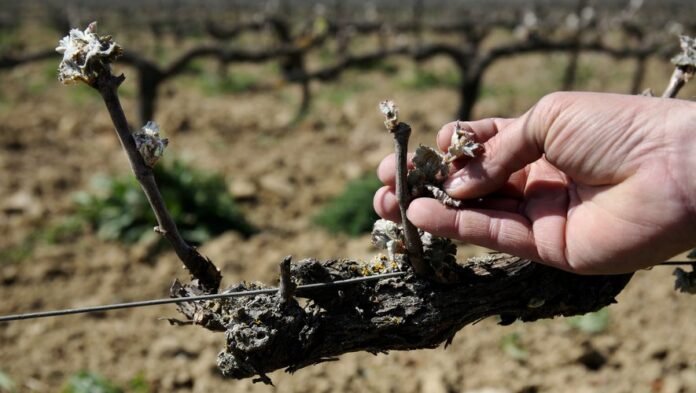On Thursday, December 8, Crédit Agricole Sud Méditerranée held an information meeting on the reform of the compensation system for farmers following climate risks, which will come into force on January 1 next. If the operators believe that the text contains progress, they also raise concerns on certain points.
“We are convinced that this is a major reform that conditions the sustainability of agriculture.” This Thursday, September 9, during the meeting organized by Crédit Agricole Sud Méditerranée to present the crop insurance reform to its clients, the Fund’s Director General, Nicolas Tavernier, set the scene from the beginning.
The upcoming reform will be a huge change for farmers. And for good reason: In less than a month, the agricultural disaster regime, which until now has allowed partial compensation for crop losses due to climatic hazards (storms, floods, etc.) will end. A completely new system, which the state has delegated to the insurance companies, comes into force on 1 January. For the president of Crédit Agricole Sud Méditerranée, Jean Pallure: “The old system had reached its limits. In France, all regions are now affected by the phenomena (more frequent and more frequent and more and more violent, editor’s note) related to climate change. The state is ready to put 600 million euros into this new unit in 2024, against 150 million euros today.
An entity managed by insurance
Concretely, the new system will consist of three levels. Level 1 relates to common hazards, which will continue to be the responsibility of farmers. Private insurance companies will start compensating from 20% of losses. Public support will only come into play after extraordinary events.
“The guarantee offered by the state remains free, but it provides only limited protection”, emphasizes Tony Agudelo, head of insurance at Crédit Agricole Sud Méditerranée. For the vine, the national solidarity fund (FSN) will only be activated, for example, when the harvest loss exceeds 50% of the estimated turnover. And will only cover 45% of losses exceeding this threshold in 2023. However, this compensation rate will decrease (40% in 2024, 35% in 2025, etc.). Farmers with private insurance will be better off. By combining the latter with DSF, they will receive compensation incl “between 60 and 90% of the loss exceeds the threshold”.
Another news: in order to benefit from the national solidarity fund, all farmers, including those who do not wish to take out private insurance, are obliged to appoint an insurer who will act as a single point of contact with the state. They have until March 31 to make their choice.
Farmers “skeptical” about certain measures
For the department chairman of Young Farmers, Pierre Hylari, some points in the reform are positive. “With the agricultural disaster, the compensation was based on the price of loose wine. At least there we take into account the turnover that is specific to us. It is better”he believes.
However, other measures are more problematic. “What makes us skeptical is, above all, the method for calculating the compensationcontinues Pierre Hylari. To estimate the turnover, there are two choices: either we start from the average of the last three years, or we take the last five by removing the best and the worst. But on some timber farms in the department we are coming off three blank years (frost etc)… Assuming they had a correct year and a bad one before that, any compensation for the 2023 harvest would be irrelevant. averaged over three mediocre years…“
Another cause for concern: at the moment, although the government mentions a high subsidy (70%), no one really knows how much farmers have to pay to take out private crop insurance. The rates depend on each individual case.
Given that insurance companies now have to estimate the damage after extraordinary events, which was not the case with the agricultural disaster scheme, some farmers wonder if there will be enough experts to provide compensation in a reasonable time. .
